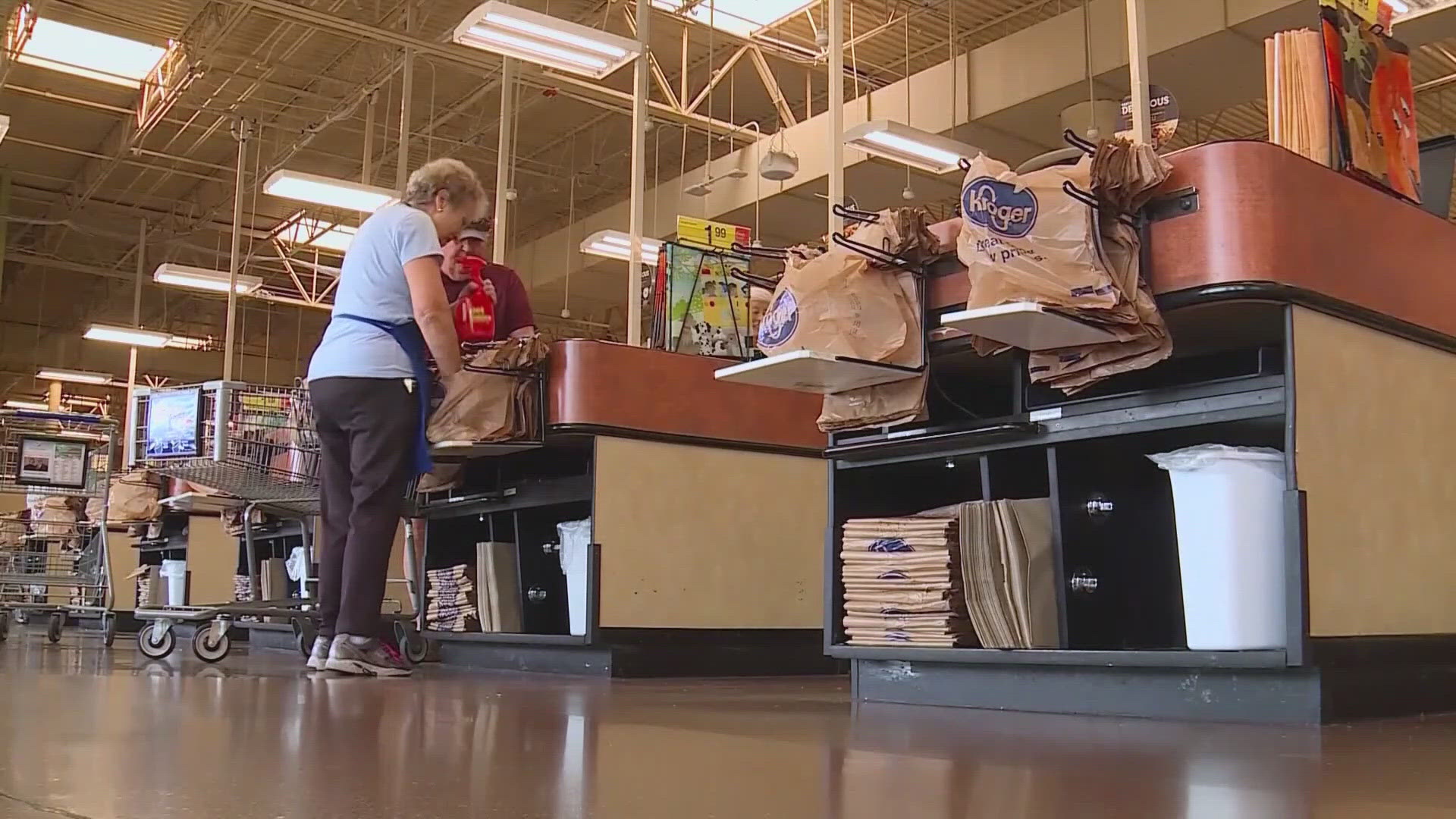KING COUNTY, Wash. — The union representing more than 100,000 Albertsons and Kroger stores in the country said it applauded the decisions by two separate judges to halt a $24.6 billion merger of the two companies.
“The well-reasoned decisions today by both Courts make plain what union grocery workers have known all along – this mega-merger would be bad for workers who deserve a workplace where they can be paid well for their labor, be safe and be respected," a statement from United Food and Commercial Workers Union 3000 reads.
U.S. District Court Judge Adrienne Nelson issued a preliminary injunction blocking the merger Tuesday after holding a three-week hearing in Portland, Oregon.
Later Tuesday, Judge Marshall Ferguson in Seattle issued a permanent injunction barring the merger in Washington after concluding that it would lessen competition in the state.
Ferguson said the merger violates the state's consumer protection act. However, Ferguson said the court could not give an assurance in regard to what would happen to any of the stores in Washington.
“I conclude that Washington’s Consumer Protection Act prohibits the proposed merger of Kroger and Albertson’s because the effect of that merger may be to substantially lessen competition in Washington," he said.
Kroger and Albertsons in 2022 proposed what would be the largest grocery store merger in U.S. history. But the Federal Trade Commission sued earlier this year, asking Nelson to block the $24.6 billion deal until an in-house administrative judge at the FTC could consider the merger’s implications.
Nelson agreed to pause the merger.
“Any harms defendants experience as a result of the injunction do not overcome the strong public interest in the enforcement of antitrust law, especially given the difficulty in disentangling a premature merger,” she wrote in her opinion.
The statement from the worker union alleges the merger would be "disastrous for shoppers who deserve competition" that lead to lower food prices. Farmers and suppliers who "deserve a health balance to negotiate fair prices" would also be harmed, the union said.
The union is calling on Kroger and Albertsons to end the merger attempt.
Federal regulators argue that combining the two chains would be bad for consumers and workers by eliminating competition. The companies say a merger would help them better compete with big retailers like Walmart, Costco and Amazon.
The case may now move to the FTC, although Kroger and Albertsons have asked a different federal judge to block the in-house proceedings. Colorado is also trying to halt the merger in ongoing state trials.
The FTC argued that Kroger and Albertsons currently compete in 22 states, closely matching each other on price, quality, private label products and services like store pickup. A merger would eliminate that competition and raise prices for already struggling consumers, the government said. The FTC also said the merger would hurt workers since Kroger and Albertsons would no longer compete to hire them.
But Kroger and Albertsons argued their merger would preserve consumer choice by allowing them to better compete against its growing rivals. In its testimony, Albertsons warned Nelson that it might have to lay off workers, close stores and even exit some markets if the merger weren't allowed to proceed.
Under the merger agreement, Kroger and Albertsons would sell 579 stores in places where their locations overlap to C&S Wholesale Grocers, a New Hampshire-based supplier to independent supermarkets that also owns the Grand Union and Piggly Wiggly store brands.
The FTC argued that C&S is ill-prepared to take on the stores and may want the option to sell or close them. But Kroger and Albertsons said C&S has the experience and national scale to handle the divestiture.
Kroger, based in Cincinnati, Ohio, operates 2,800 stores in 35 states, including brands like Ralphs, Smith’s and Harris Teeter. Albertsons, based in Boise, Idaho, operates 2,273 stores in 34 states, including brands like Safeway, Jewel Osco and Shaw’s. Together, the companies employ around 710,000 people.

